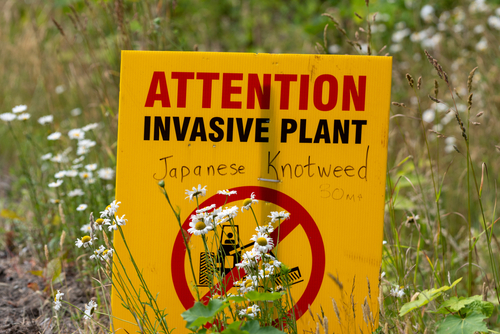
Experts are warning that buyers rushing to complete before the March 31 cliff edge for the stamp duty holiday may miss a problem that’s been highlighted by a recent legal case - Japanese Knotwood.
Japanese Knotweed dies back during winter making it much harder to spot, and recent changes to the guidance accompanying the Property Information form completed by sellers have resulted in an increase in ‘Unknown’ responses to the Japanese knotweed question, according to Environet UK.
Research which the firm has conducted in conjunction with YouGov indicates that one seller in every 25 admits they would be willing to conceal knotweed if it was growing on their property - meaning buyers could find themselves seriously out of pocket when the plant begins to emerge.
Nic Seal, managing director of Environet UK, says: “Later this spring I expect we’ll see a sharp rise in legal cases against sellers who have failed to declare the presence of knotweed, leaving buyers desperately trying to recoup their costs.
“Japanese Knotweed can impact a property’s value by up to 10 per cent so it’s essential buyers carry out their own investigations if the seller is unable to offer any assurances, even if it means the conveyancing process takes longer.
“For those under pressure to complete by the end of the stamp duty holiday in March, it’s worth noting that the cost of treatment combined with diminution of property value if knotweed is subsequently discovered would in most cases be far greater than the stamp duty saving on offer.”
Sellers are legally required to declare if a property has Japanese Knotweed but buyers are particularly vulnerable at this time of year when the plant is less visible.
Seal continues: “Deliberate concealment of Japanese knotweed is unwise. Dishonest sellers are likely to find themselves being sued for misrepresentation and may have to pay substantial legal fees and compensate the buyer for the inevitable decrease in the property’s value.”
Last week national newspapers reported a case involving a homeowner claiming his house was devalued by tens of thousands of pounds because of Japanese Knotweed.
The London homeowner, who was awarded £27,000, said his home had lost value due to the encroachment of stems from neighbouring land.
The land that contained the Knotweed was owned by a property development company that allegedly allowed the plant to spread and develop to the neighbouring property.














.png)


.png)




Join the conversation
Be the first to comment (please use the comment box below)
Please login to comment